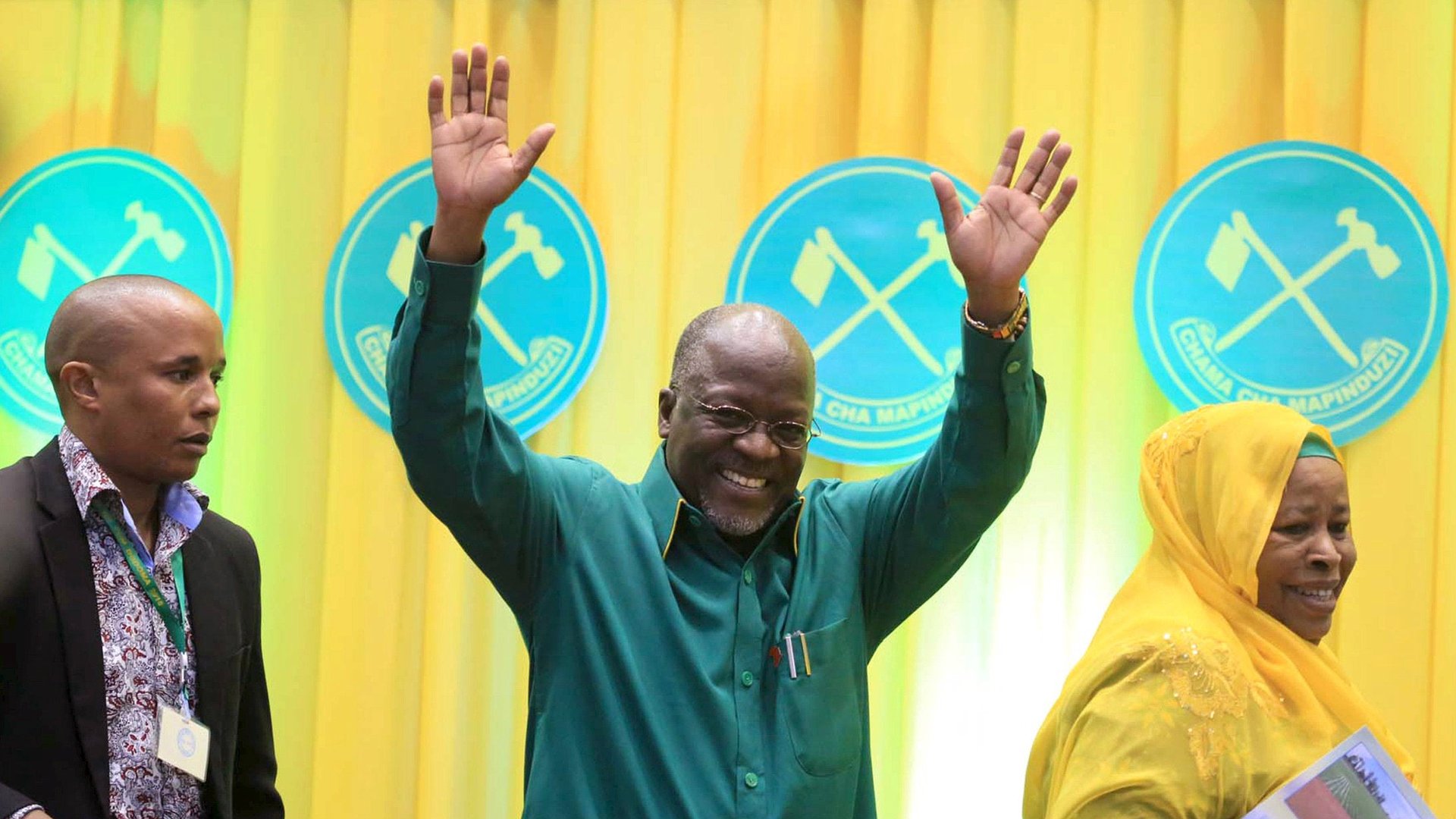Tanzania’s presidential race is not as tight as previously thought—not even close
In what has been described as the most competitive presidential campaign in Tanzania’s history, presidential candidate John Magufuli of the ruling party Chama Cha Mapinduzi (CCM) has established a significant lead, a new poll shows.


In what has been described as the most competitive presidential campaign in Tanzania’s history, presidential candidate John Magufuli of the ruling party Chama Cha Mapinduzi (CCM) has established a significant lead, a new poll shows.
The survey released today (Sept. 22) by the nonprofit civic organization Twaweza—thus far the only public poll on the current election—shows Magufuli leading his closest challenger, Edward Lowassa from the main opposition party Chadema, by 40 points. More than two-thirds of the respondents indicated that if the election were held today, they would vote for Magufuli. (Note: the poll was only conducted in the mainland and did not include voters from Zanzibar.)
The results might be seen as a big blow to the opposition, which this year has chosen to unite under the collective Ukawa—made up of Chadema, CUF, and others) and field one candidate for president.
But Tumaini Makene, Chadema’s spokesman, dismisses the poll’s results, saying this was just another tactic by the ruling party in its attempt to remain in power. “Twaweza are being used by CCM,” he tells Quartz. “Earlier polls showed that people were not happy with CCM. All of a sudden they came out with a poll that contradicts this.”
He argues that the support that Lowassa has been generating on the campaign trail was completely missed by Twaweza’s poll. “All signs are showing that CCM are losing. People are not happy with CCM’s corruption, delivery of services,” he says. “[CCM] has been in power for a long time and this is their way of staying in power by confusing people with wrong data. And it is trying to effect political legitimacy, which they lost a long time ago.”
In August, Ukawa nominated Lowassa, a former prime minister, as its candidate after he defected from CCM following his failure to secure the ruling party’s nomination. Despite his being a polarizing figure—he was previously caught up in a corruption scandal—Ukawa hopes that his name recognition and substantial personal wealth, which he is prepared to inject into the campaign, will secure the presidency for the party and increase its share of seats in parliament.
The Twaweza poll, however, shows not only is the ruling party leading the race for the presidency, but that Lowassa may have had a negative impact on the opposition’s chances of gaining more seats in parliament. In 2014, only 46% of voters said they would elect CCM members of parliament. That number has now jumped to 60%, with the opposition claiming 37%.
Additionally, the poll shows that CCM’s overall favorability rating among voters is climbing—and hints at the extraordinary political transformation that Magufuli has undergone in the course of less than a year. Last November, only 3% of voters expected him to emerge as the ruling party’s nominee. But ever since he secured the nomination, CCM has worked at positioning him as a hardworking candidate who will fix Tanzania’s problems. When asked which party they feel closest to, here’s what the survey participants had to say:
Meanwhile, the economy—which had been the top issue for voters heading into this election year—appears to have fallen down their list of priorities, with issues such as health-care and education gaining more prominence.
Aidan Eyakuze, the executive director of Twaweza, is quick to caution against drawing any definitive conclusions about the poll’s results. “The voters’ minds aren’t as solid as it appears in our statistics,” he tells Quartz. “There is a lot of information gap in the voters’ minds.”
One example he points to: Despite 99% of those polled saying they intend to vote in the Oct. 25 election, only 57% even know the exact date of the election. Indeed, turnout may play a big role in determining the winner. In 2010, only 43% of eligible voters actually voted.